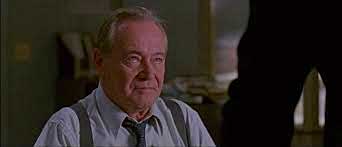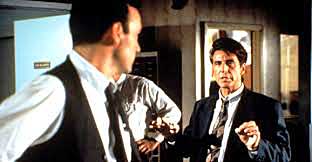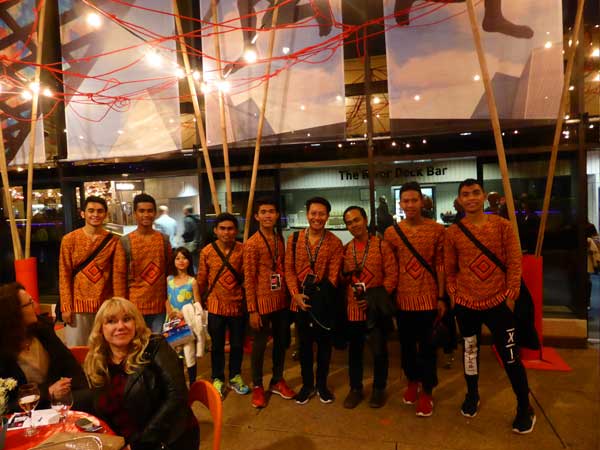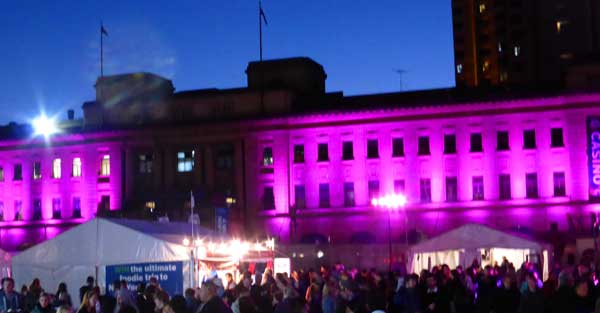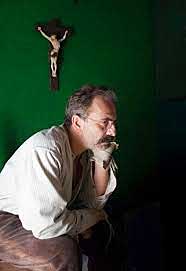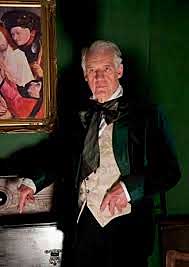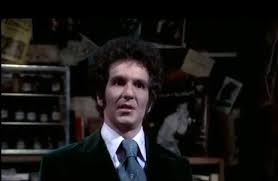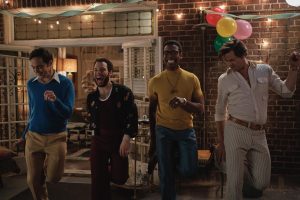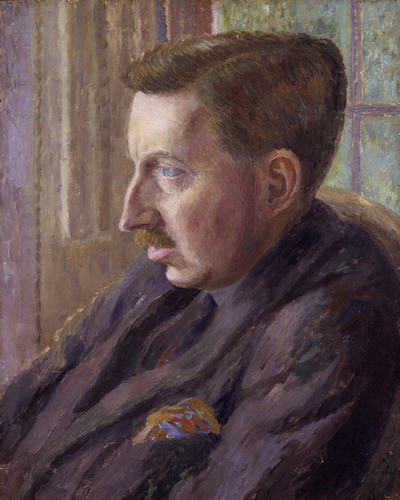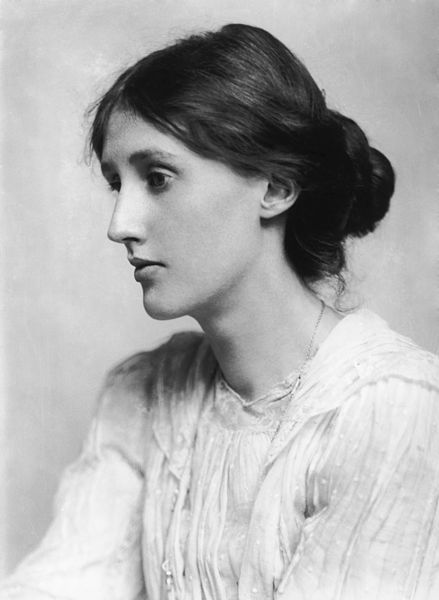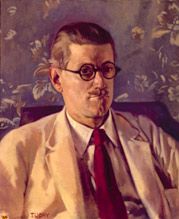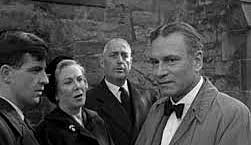The Varnished Culture's Thumbnail Reviews
Regularly added bite-sized reviews about Literature, Art, Music & Film.
Voltaire said the secret of being boring is to say everything.
We do not wish to say everything or see everything; life, though long is too short for that.
We hope you take these little syntheses in the spirit of shared enthusiasm.
The Lost Landscape

(by Joyce Carol Oates).
Joyce Oates wrote this:-
“‘My sweet little blue-eyed girl,’ he said in a half-sung sigh that had nothing to do with [Connie’s] brown eyes but was taken up just the same by the vast sunlit reaches of the land behind him and on all sides of him – so much land that Connie had never seen before and did not recognize except to know that she was going to it.”*
Surely one of the most chilling and sublime sentences in American fiction.
So I pre-ordered the first volume of her memoirs (excluding “A Widow’s Story’) with alacrity and impatience and yet —some doubt. She so often lets me down.
There are flashes of that brilliance –
“We begin as children imagining and fearing ghosts. By degrees, through out long lives, we come to be the very ghosts inhabiting the lost landscapes of our childhood“.
And I was pleased to learn that she had a pet Rhode Island Red (sex indeterminate) called Happy Chicken.
But the first half of the book is that worst of all literary failures – a bore. It does pick up when it becomes more personal – we move from landscape to Oates’ lost friend, lost sister, murders, suicides, clothes, food, inspiration, reading, a crushing year at The University of Wisconsin lightened only by the meeting with her future husband. We learn virtually nothing about this husband or their lives together. It is a memoir of loss, of moving on but so much is missing, elided. Many of the pieces have been previously published, sometimes in a different form. As with so much of Oates’ work it is episodic, fragmented and feels lazy. Will no editor stand up to her, for all of our sakes?
*“Where are you Going, Where have you Been?”
Continue Reading →The Peninsular War
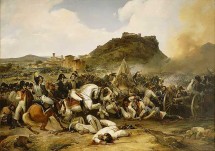
(by Charles Esdale)
We can be thankful that Napoleon, like that chap Hitler, ridiculously over-extended himself. Exhibit ‘A’ is the seven year war on the Iberian Peninsula, which ruined Spain (and Portugal) for decades and created a schism there that lingers today. It also, fortunately, hived off necessary men, arms and resources that weakened the French Emperor’s efforts to subjugate the continent.
This comprehensive book, based on old as well as up-to-date and diverse sources, offers a complete overview of the bloody campaign, the struggles of the various Fields Marshal and in particular the intricate politics. It is dense but readable and helps us see the significance of the War on the struggles against ‘Boney’ that were still to come.
Continue Reading →Glengarry Glen Ross
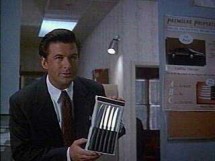
(Written by David Mamet) (Dir. James Foley) (1992)
The sales staff get the leads, such as they are. They go out on sits, when (in various guises) they descend on the unsuspecting and try to sell them what sounds very much like swampland. The salesmen are driven less by greed and more by fear because as the motivational guy has just confirmed, failure to close the deal is death.
This film of Mamet’s play is stagy (of course), but with top-shelf power acting (by Al Pacino, Jack Lemmon, Kevin Spacey, Ed Harris, Alan Arkin, Alec Baldwin and Jonathon Pryce), it amounts to a potent, punishing and profane re-imaging of the pitiless unseen working facets of Death of a Salesman. As Michael Billington described the piece in The Guardian, “a chillingly funny indictment of a world in which you are what you sell.”

Cry Jailolo
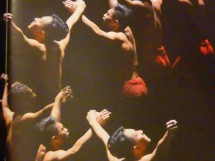
Oz Asia Festival, “Cry Jailolo” (Dunstan Playhouse, Festival Theatre, Adelaide) (24/9/15)
Jailolo, part of the Indonesian archipelago, has coughed-up a troupe of seven fit young men who (choreographed by Eko Supriyanto) present a genuinely novel dance sequence based on indigenous tribal myth from North Malaku, with modern overtones of environmental threat to a pristine local environment. Sinuous, mesmerizing, ephemeral and fluid, involving moves that are both new and alien, this is an interpretation that intrigues and engages lovers of dance and agnostics alike. Their unusual motion, use of light and shade, stillness, subtle use of hand and foot for percussion, and sense of space, is remarkable, so that we found ourselves guessing at the next move and counting the dancers, to confirm there were still (or only) seven of them there.
Emma and Lesley welcome the troupe, togged-up and street-legal
No Asia Festival without a dragon (above). No legislature without some mauve…(SA Parliament House below)
Loitering afterwards over a drink in the Dunstan Playhouse, we were taken aback at the portrait looming at us: former South Australian Premier Donald Dunstan (1926-1999), perhaps the last South Premier to belong in our state pantheon, a deservedly renowned patron of the arts, Fiji born, who (with respect to artist Salvador Loreto) surely deserves a better portrait than this grotesque and disproportionate caricature, a bastard cross twixt the worst of the packing crates prize and David Byrne’s oversized suit from Stop Making Sense.
Continue Reading →
Old School
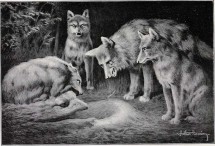
(by Tobias Wolff)
Imagine! A school of boys whose role models are writers! Where is this youthful intellectual paradise? Somewhere in the USA of the 1960s. But beware, boys. Literature is a wolf and your morals are its prey.
Continue Reading →
Twilight of the Gods
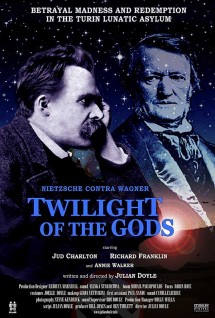
(Dir. Julian Doyle) (2013)
Friedrich Nietzsche (1844-1900), the successor to Schopenhauer and a great writer and weirdo, said he “would never have survived my youth without Wagnerian music.” “And Wagner did become Nietzsche’s awakener, who, by subsequently failing to live up to the youth’s ideals, dealt him wounds which, though they never healed, yet played a salutary role in his development into one of history’s most formidable philosophic writers and thinkers. Like King Ludwig, he at first placed Wagner upon so high a pedestal that the concussion of the idol’s fall shattered not only it but the shocked worshipper, too. Little by little, the youth detected the extent of Wagner’s intellectual and moral charlatanry…”*
P has to make some admissions in reviewing this film. First, one has read Nietzsche and struggled to make head or tail of him, except that his ethic seems to be power-mad, metaphysical hero-worship, and repellent. Where he genuinely strikes new ground, it is in contempt for convention. But he did admire tyrants and he was far more overtly anti-Semitic than the Maestro was. His views were close to what Bertrand Russell called “the mere power-phantasies of an invalid…”**
Second Admission: P finds Richard Wagner to be closest to the mantle of greatest composer of music-drama that ever lived, and though he may well have been an unreconstructed bastard, who the hell cares? The overarching premises of the Nietzsche/Wagner story concern the great musical myths Wagner wrought, and their influence on a precocious but fragile mind. (For example, as Russell noted, Nietzsche’s superman is a lot like Siegfried except that he knows Greek+).
So! We come to a beautiful Sunday afternoon, 20 September 2015, and the Richard Wagner Society SA, that had secured a private screening of Julian Doyle’s psychodrama set in the Turin lunatic asylum – rather incredibly, we understand that the Adelaide Film Festival ‘passed’ on the piece – and it proved to be of definite morbid interest.
Nietzsche (Jud Charlton) has finally gone nuts and we see him, at opening, manacled to his chair in a garret with his wrists disturbingly bandaged. The ghost of Wagner (Richard Franklin) appears and the philosopher cross-questions and confronts the Maestro with charges of anti-Semitism, moral inconsistency, adultery, and so on.
This film is really about Nietzsche, not Wagner: there is a visceral element to the (barely) living man’s accusations and strong hints of self-loathing, guilt and transference. What can you say about a German who writes, in Ecce Homo, “Except for my association with a few artists, above all with Richard Wagner, I have not spent one good hour with a German.”
In the end, the philosopher over-eggs his case and while you feel sorry for his plight, P found himself liking Wagner more. But the close camera work and passionate performances kept one’s interest up over the ninety minutes, and afterwards we had the chance to have brief but interesting speaks with Michael Baldwin who had played Nietzsche in a previous production by the Theatre Guild. Our conclusion: Nietzsche was a flawed, odious but extremely interesting man; Wagner, meanwhile, was a genius, in deathless quest of perfection, which condition absolves nearly all faults and sins.
[*Robert W.Gutman, Richard Wagner – The Man, His Mind, and His Music (1990), p. 315.] [**Bertrand Russell, History of Western Philosophy (1946), p.794.] [+ Ibid, p. 788.] Continue Reading →
Peter Allen – Not the Boy Next Door
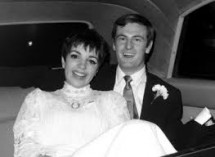
The final stages of this TV two-parter are a salutary reminder of that dreadful scourge of the homosexual world in the 1980s – the music of Peter Allen. Oh yes and that AIDS was, in those days, suddenly rampant and absolutely untreatable. This is a paint-by-numbers production. But that doesn’t mean it is bad – just mediocre, glitzy, watchable and non-threatening. Like Allen himself.
The audience is told what to think at every stage, from the obligatory hard-scrabble childhood (cleaning Dad’s brains off a wall), to fame, fortune and an opportunistic marriage to American music royalty. Sigrid Thornton looks surprisingly like Judy Garland but is stretched by a script which requires more forced and annoying comebacks than John Farnham. Sara West is not convincing as Liza Minnelli. Ky Baldwin is exuberant as the young Peter Woolnough. Joel Jackson plays Allen with wide-eyed likeability but doesn’t capture his hard-edged weirdness. And a warning – the wigs are BAD..
[P adds – several 1960s/1970s scenes were filmed at TVC’s favourite Sydney chichi hotel – The Stamford at Circular Quay, tucked away and filled with recondite charm.] Continue Reading →The Boys in the Band
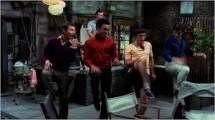
(Dir. William Friedkin) (1970)
In 1968/1970, gays were still (perforce) tortured. In this claustrophobic classic, we see a cavalcade of torture. A bunch of lads (‘closet queens’) are having a birthday party for pal Harold (a male Mae West, crossed with Lou Reed), but host Michael’s college buddy drops in, quite inconveniently, on the 8 chaps who prefer sex with men.
In a sensational ensemble, the stand-outs are Harold (Leonard Frey, in a performance to die for) and Michael (Kenneth Nelson, all ‘countercharm’, in his greatest role till Edge of Darkness) who clearly have a deep dark history. Also, note Peter White, as the stout fellow who drops in and is the inverse of the band’s prejudices and the object of his host’s prejudice.
It’s a kind of Gay Who’s Afraid of Virginia Woolf? and near the conclusion, after a venal telephone game during which Michael, full of piss and vinegar, warns Harold, Harold rounds on Michael in concise, subdued, and devastating fashion: “We tread very softly with each other because we both play each other’s game too well. I know this game you’re playing, I know it very well and I play it very well. You play it very well too but you know what? I’m the only one who’s better at it than you are. I can beat you at it, so don’t push me. I’m warning you.” and then, as a catharsis: “You’re a sad and pathetic man. You’re a homosexual and you don’t want to be…You may very well one day be able to know a heterosexual life, if you want it desperately enough, if you pursue it with the fervour with which you annihilate – but you’ll always be homosexual as well – always Michael – Always – until the day you die.”
UPDATE: REMAKE
THE BOYS IN THE BAND (2020) (Dir. Joe Mantello) (Netflix)
Mart Crowley’s great play is remade (not updated; still set in 1968) but we had trouble working out why. It is a reprise of William Friedkin’s claustrophobic 1970 film, and while it is re-done well, the script and mise-en-scène are virtually identical. We couldn’t see a point of difference, and hence, a point. All the performances are fine (Zachary Quinto as Harold is less theatrical, but still quite intense, in a misty way) and there is some tacked-on nudity that would probably be disallowed in the earlier film, if you like that sort of thing. And a coda both unnecessary and harmless. If you haven’t seen the 1970 film, it is well worth checking out. We’ll take the 50 year-old version, thanks.
Almost frame for frame [see main image (1970)] Continue Reading →
Richard Wagner and the Modern British Novel
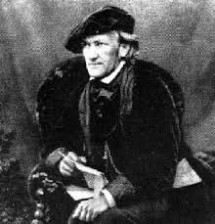
(by John Louis Di Gaetani) (1978)
When P brought this obscure little tome at the Paradise Bookshop, L asked, not unreasonably, “What has Wagner to do with the modern British novel?” Oh ye of little faith and so many brains! Well, let’s see….
In this book, Dr Di Gaetani mounts the case that the operatic works of Wagner, and in particular the poetry and prose in his librettos, had a vital galvanising effect on five major British novelists maturing (if not all necessarily in their prime) during the Edwardian Age: Joseph Conrad, D.H. Lawrence, E.M. Forster, Virginia Woolf and James Joyce.
P read this book as a juror and naturally, as a juror, he brought all of his common sense, life experience and basic fairness to the task, as well as his endogenous prejudices. That said, the prosecution case can be summed up thus:
Wagner was white hot in the 1890s and early 20thC in the United Kingdom – check. The five authors under consideration were “very much interested in opera.” He suggests that the allusions, themes, images and symbols deployed by Wagner in his operas – what he calls Wagnerian patterns – are used by the authors “in a peculiarly modern way”.
Di Gaetani continues with a sensible concession: “Joseph Conrad was not a Wagnerian in any strict sense of the word.” Nevertheless, he sets himself the task of proving that “Wagner’s operas had a subtle and profound influence upon Conrad’s fiction.” The evidence comprises passing references in a couple of letters and some dubious parallels: e.g. the Curse of Gold (The Ring) vs. the Curse of Silver (Nostromo); Land vs. Sea in The Flying Dutchman and Chance. In a short story, “Freya of the Seven Isles”, the protagonist picks out some Wagner tunes on a piano. These are very long bows and despite the detailed and quite incisive discussion of a number of Conrad’s books, Di Gaetani’s heroic case collapses.
With D.H Lawrence, one is on safer ground we guess – an obscure 1912 novel, The Trespasser is discussed in depth; a woman has an affair with violin teacher Siegmund, who kills himself. Wagnerian references abound, and we concede this one, but since it is D.H. Lawrence, who cares?
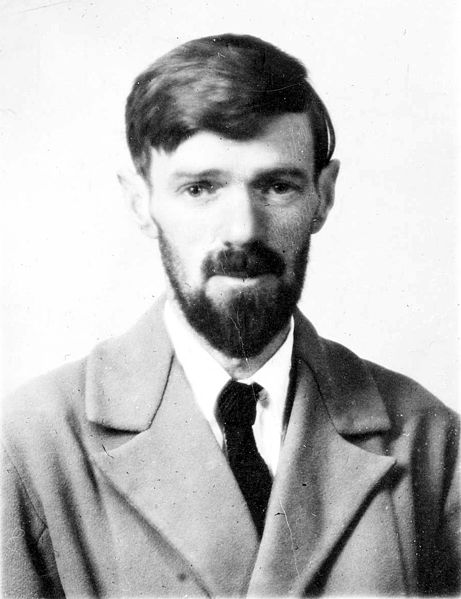 Certainly E.M. Forster was a Wagnerite and he did draw linkages ‘twixt music and fiction, but Di Gaetani’s case here is shaky. References to Wagner sprinkled through the novels are seized and shaken by the throat but most unpersuasively, the author cites tropes used in Where Angels Fear to Tread, The Longest Journey, Howard’s End, and A Passage to India, suggesting they are leitmotifs. This is akin to ‘only connecting’ the sculpting of a play by, say, Terence Rattigan, with Gaudi writing a description of a new building – they are similar creative processes, in differing mediums. Case dismissed.
Certainly E.M. Forster was a Wagnerite and he did draw linkages ‘twixt music and fiction, but Di Gaetani’s case here is shaky. References to Wagner sprinkled through the novels are seized and shaken by the throat but most unpersuasively, the author cites tropes used in Where Angels Fear to Tread, The Longest Journey, Howard’s End, and A Passage to India, suggesting they are leitmotifs. This is akin to ‘only connecting’ the sculpting of a play by, say, Terence Rattigan, with Gaudi writing a description of a new building – they are similar creative processes, in differing mediums. Case dismissed.
Virginia Woolf! She regarded opera as a social event, even an obligation, with the frisson of sexual dreams (e.g. Kitty in The Years rows down a fantasizing stream whilst attending a performance of Siegfried) and Wagner crops up from time to time, but to correlate The Waves with Wagnerian sturm und drang and watery scenes is a bit of a stretch. Woolf was an interesting but limited writer: to compare her books to the Wagnerian sphere does her no favour. Cur adv vult.
Finally, Joyce. Last century’s great comic writer used references to Wagner (with a myriad others) for comic effect, perhaps burdened as he was from seeing several poor Italian productions of the Maestro’s oeuvre. By the time of The Wake, he only brings up Wagner to be rude about him. Joyce was a literary magpie and he dealt in myths as one deals with bread and butter, so it is natural that Wagnerian myths, potent as they are, feature. As a literary influence however, the evidence is thin, and while Wagner casts a long shadow, and with good reason, collecting specific evidence of substantive influence is elusive as painting flowing water.
We ultimately reject the author’s contention that “music and literature, were harmoniously joined in some great modern literature through the rainbow bridge of Wagnerian patterns.”
Continue Reading →The Entertainer
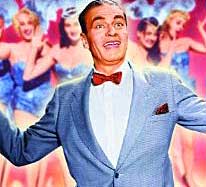
(Dir. Tony Richardson) (1960)
This is probably John Osborne’s best play and he scripted the film that centres on Archie Rice and the closing days of his “Act” at one of merry England’s many depressing beach-side town-lets, whilst the Empire slides into the Suez Canal. There is a potent whiff of death hovering about the whole diseased enterprise – when you see the various scenes of music hall depravity, dreadful old routines and songs in the local pub, or the gorgeously hideous Lovely Girls Contest, poolside and prurient, you can picture a young David Lynch, wide-eyed and with a beatific grin, imagining future scenes from Eraserhead or Twin Peaks.
Laurence Olivier has to perform the worst of vaudeville’s repertoire, which he does stoically. As Rice off-stage, he does rather more: a magnificent performance as a weak, selfish, kind, debauched, conniving, self-centred, hedonistic, deluded, two-faced down-at-heel, heroically facing personal and moral bankruptcy. Full of wit, anger and maudlin charm; defying the indifference of audiences, the decline of Empire, technical insolvency, merciless ageing, and the onslaught of television, Archie could well be his best later film role (sadly, since the film was met with the same cold reception attending Archie’s shocker of an Act).
Joan Plowright as Archie’s daughter, is Olivier’s match, solid, sensible, and knowing, an archetypal Osborne gamine. She is the only member of the family to prick Archie’s bubble, including her memorable reference to one of Rice’s objects of desire: “She’s a Professional Virgin.”
Debutantes Alan Bates (as the drippy son), and Albert Finney (off to the dirty, disastrous little war in Egypt), have very good bits, and Roger Livesey is, as always, perfect as the lecherous, grumpy and doomed Granddad.
In sum, this film is heartless and yet full of heart, contradictory and cold. As Rice sings in his swan song: “Why Should I Care?…What’s the use of Despair? If they see that you’re blue, they’ll look down on you, so why, oh why, should I….?”
Continue Reading →

